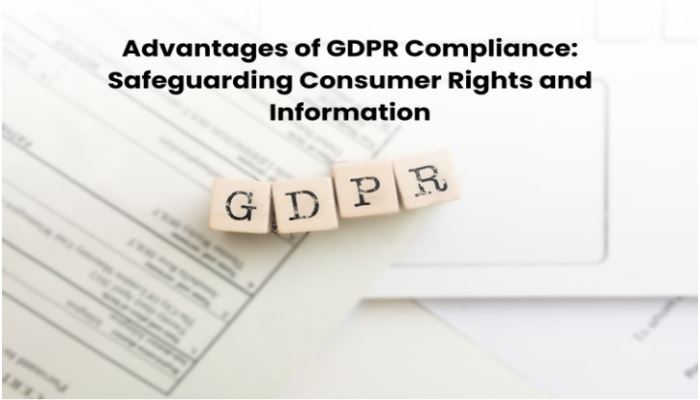Advantages of GDPR Compliance: Safeguarding Consumer Rights and Information

The General Data Protection Regulation (GDPR) represents a significant milestone in data privacy legislation, aiming to enhance the protection of personal data and empower individuals with greater control over their information. While achieving GDPR compliance may seem like a daunting task for organizations, it offers numerous advantages beyond regulatory adherence. In this blog, we’ll explore the Benefits of GDPR compliance, emphasizing how it safeguards consumer rights and information. Additionally, we’ll highlight the role of GDPR Course programs in demonstrating an organization’s commitment to data protection and privacy.
Enhanced Data Security and Privacy
Among the main benefits of GDPR compliance is improving data security and privacy protocols within businesses. Organisations may enhance the security of their personal data by putting GDPR-mandated security measures, including encryption, access restrictions, and recurring security assessments, into place. This lowers the possibility of data breaches and illegal access while also giving customers peace of mind that their information is handled appropriately.
Greater Transparency and Accountability
Organisations must manage personal data with accountability and transparency about their data processing operations to comply with GDPR. This entails giving people unambiguous privacy notifications that explain the reasons for data processing, the legal justification for processing, and the rights of data subjects. Businesses may gain customers’ confidence by promoting accountability and transparency and showcasing their dedication to moral data practices.
Empowerment of Data Subjects
With rights including the ability to see their data, correct errors, and request erasure (often referred to as the right to be forgotten), the GDPR gives people more control over their data that is about them. Organisations may improve customer trust and loyalty by upholding these rights since people will feel more in control of how their data is handled and processed.
Global Competitiveness and Market Access
Complying with GDPR may improve an organization’s market access and worldwide competitiveness. As a result of the GDPR’s influence on several nations and areas, observance of its regulations is now a crucial advantage for businesses looking to expand internationally. Furthermore, cooperation and relationships with other companies that value data privacy may need GDPR compliance.
Mitigation of Regulatory Risks and Penalties
Significant regulatory risks and fines, up to 4% of annual worldwide revenue or €20 million, whichever is larger, may arise from non-compliance with the GDPR. Organisations may reduce these risks and avoid the expensive fines and harm to their image that come with non-compliance by attaining GDPR compliance. Furthermore, authorities may regard compliance with the GDPR favourably as it shows a commitment to ethical data handling.
Demonstration of Ethical and Corporate Responsibility
Organisations may exhibit their business and ethical commitment to data security and privacy by adhering to GDPR. By prioritising protecting consumer rights and information, companies may improve their standing as reliable and accountable data stewards. This may benefit consumer loyalty and brand impression, as people are more inclined to interact with companies that value data protection.
Role of Certification GDPR Programs
Programmes for GDPR certification are essential for confirming an organization’s compliance with regulations and dedication to data security. To customers, partners, and authorities, organisations may prove that they have established strong data protection procedures and uphold the highest privacy standards by acquiring GDPR certification. By offering an organised framework for evaluating and verifying GDPR compliance, certification programmes assist organisations in comparing their procedures to industry best practices.
Conclusion
Beyond only adhering to regulations, organisations may benefit much from GDPR compliance. Organisations may improve data security and privacy, promote accountability and transparency, empower data subjects, and gain a competitive advantage in the global market by protecting consumer rights and information. Furthermore, adhering to the GDPR lowers regulatory risks, exhibits moral and business responsibility, and may be verified by GDPR certification programmes. Since customers and authorities across the globe continue to place a high value on data privacy, businesses looking to gain credibility and confidence in the digital era must comply with GDPR.



